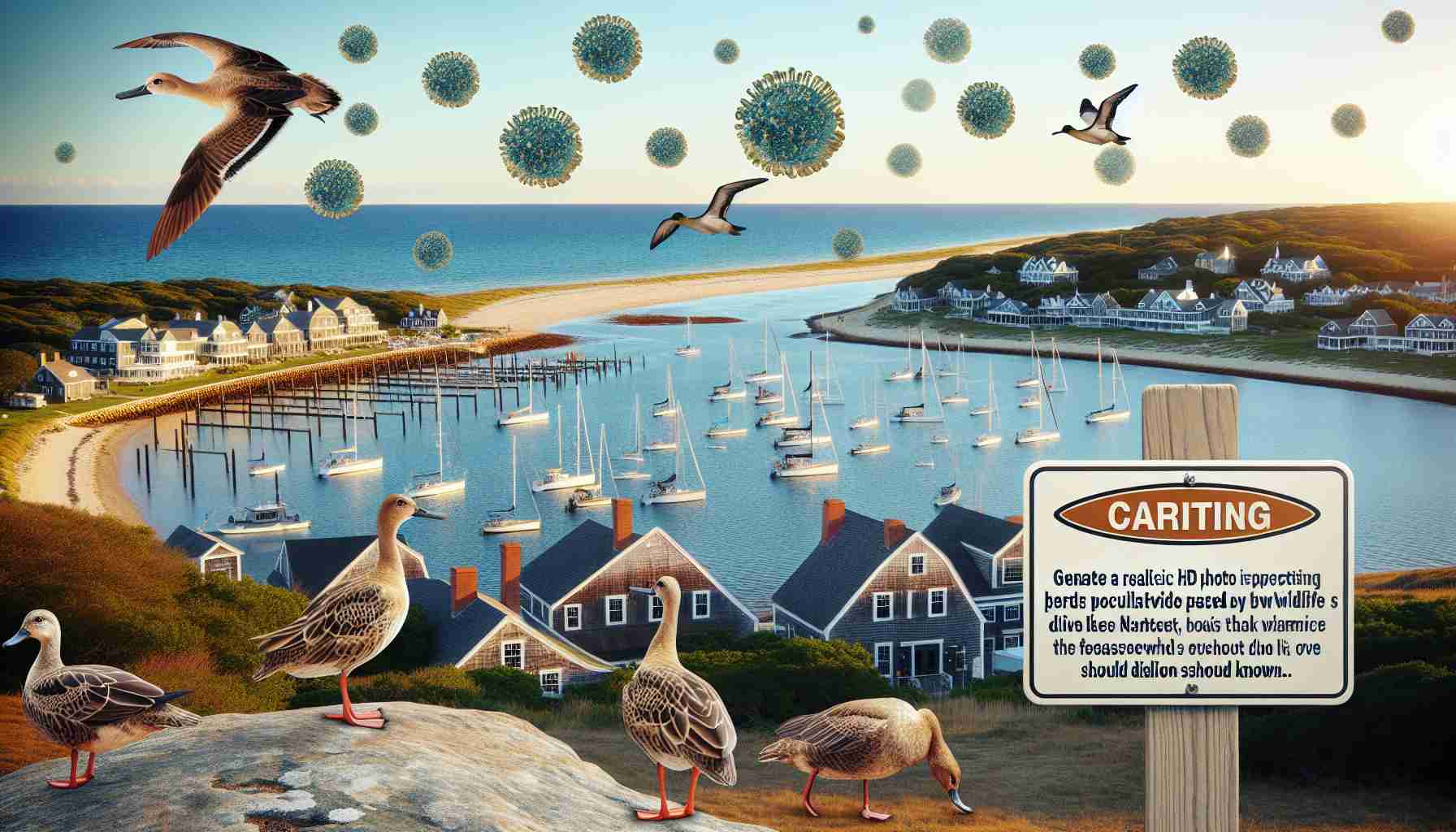- Alarming numbers of dead birds, including eiders and scoters, are reported along Nantucket’s shores.
- Wildlife officials are concerned about a potential link to the Highly Pathogenic Avian Influenza outbreak in Massachusetts.
- Health officials advise the public to avoid contact with sick or dead birds and to keep pets leashed.
- Testing is underway, with nearly 100 samples collected by wildlife rescue teams.
- Residents are encouraged to report unusual bird deaths to help monitor the situation.
- Awareness and preventive measures are vital in protecting both local wildlife and public health.
Winter strolls along Nantucket’s pristine shores have taken a heartbreaking turn as dead birds wash ashore in alarming numbers. Local health officials and wildlife advocates are raising the alarm—might this be a sign of the Highly Pathogenic Avian Influenza (HPAI) outbreak currently spreading across Massachusetts?
Experts emphasize the unusual sight of countless deceased birds—including eiders, scoters, and gulls—scattered across the beaches. Wildlife rescue teams are swiftly acting, collecting nearly 100 samples last weekend for testing. The presence of more male eiders than usual indicates something may be amiss, with concerns running high about the health of the local ecosystem.
While HPAI poses little risk to humans, the potential threat to both wild and domestic birds looms large. Public advisories stress the importance of avoiding contact with sick or dead wildlife, ensuring pets stay leashed, and reporting any unusual bird deaths. The state has witnessed significant outbreaks before, with recent reports of wild turkeys succumbing to the virus on Martha’s Vineyard.
The cold snap and usual winter die-off could be causing an uptick in sightings, though experts urge caution. Wildlife researchers encourage island residents to remain vigilant while awaiting test results, emphasizing the need for awareness and prevention.
With the scarcity of concrete answers, one takeaway stands out: protect yourself and your pets, and report any clusters of dead birds. The delicate balance of Nantucket’s wildlife hangs in the balance, and your actions can help safeguard it. Let’s keep the island’s beauty thriving!
Uncover the Truth Behind Bird Deaths: What You Need to Know About Avian Influenza
Understanding the Recent Bird Deaths on Nantucket
Recent events on Nantucket’s shores, where an alarming number of dead birds have washed ashore, have raised serious concerns among health officials and wildlife advocates. This situation is being scrutinized in light of the ongoing Highly Pathogenic Avian Influenza (HPAI) outbreak in Massachusetts, which is impacting both wild and domestic bird populations.
Key Information and Insights
– Dead Bird Species: The birds found include eiders, scoters, and gulls, with a notable increase in dead male eiders. The presence of these specific birds raises questions about the implications for the local ecosystem.
– Precautionary Measures: Wildlife officials recommend that residents avoid contact with sick or deceased birds, keep pets leashed, and report any unusual bird mortality to the relevant authorities.
– Testing and Monitoring: Nearly 100 samples have been collected for testing to ascertain the cause of death and whether HPAI is indeed responsible for this phenomenon.
– Weather Impact: The recent cold spell and usual winter die-off of bird populations may be contributing factors to the heightened sightings of dead birds, but caution is warranted.
Trending Topics and Insights
– Wildlife Health and Safety: The rise of HPAI raises an important dialogue about wildlife health and the measures that should be taken to protect affected populations.
– HPAI and Ecosystem Effects: The fallout from HPAI can have far-reaching effects on local ecosystems, impacting food chains and biodiversity.
– Community Involvement: Vigilance from the community is essential in identifying unusual behaviors in wildlife that may indicate illness, thereby helping to control the situation.
Frequently Asked Questions
1. What is HPAI and how does it affect birds?
– Answer: Highly Pathogenic Avian Influenza (HPAI) is a subtype of the avian influenza virus that causes severe disease and high mortality rates in birds, particularly among domestic species. Wild birds can carry the virus asymptomatically, but outbreaks can lead to significant losses in bird populations.
2. Are there risks to humans from HPAI?
– Answer: Generally, HPAI poses a low risk to humans. Transmission between birds and humans is rare, but the CDC recommends avoiding contact with sick birds and taking proper precautions if in the vicinity of diseased wildlife.
3. What should I do if I find a dead bird?
– Answer: If you encounter a dead bird, do not touch it. Report the sighting to local wildlife agencies and ensure pets are kept away from the area.
For more information on wildlife health, visit U.S. Fish and Wildlife Service.
This situation remains fluid, and ongoing monitoring and community awareness will be key in mitigating risks associated with HPAI on Nantucket and beyond.
